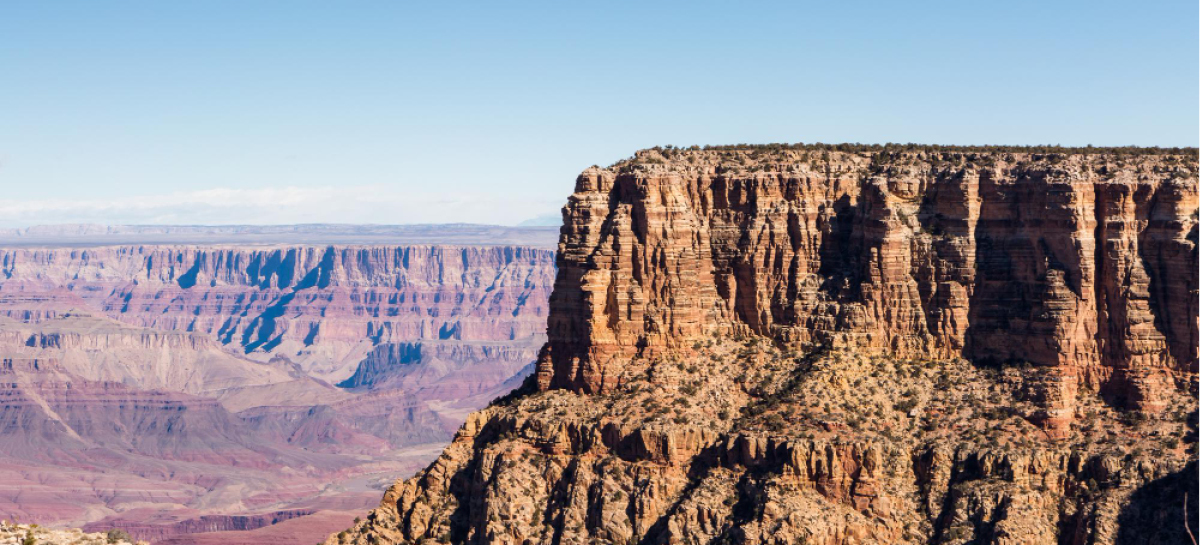Defying conventions, our member Mrs K. Roy travelled all by herself as a student in the USA, back in 1985. Here she recalls a memorable trip to the Grand Canyon.
The first time I travelled to the USA, in 1985, I knew I had to visit the Niagra Falls and the Grand Canyon. In order to visit the Grand Canyon, I needed to go through Las Vegas. I was a student back then and was travelling solo. There were two options: I could either do a helicopter ride and be back in Las Vegas by the end of the day or spend a night at the Canyon. I was travelling on a tight budget but thought to myself that it was a once-in-a-lifetime opportunity and that I should spend a night at the Canyon. That way I would be able to enjoy the sight of the sun setting and rising over the landscape.
Because I was the only one travelling solo in our group I got to sit next to the helicopter—it was the best seat! The sight of the Colorado river winding its way through the valleys is one to behold. Our helicopter tracked the course of the magnificent river which was wide in some places and narrow in others. The splendid colours of the mountain—yellow, red, magenta, purple, and white—were like nothing I’d seen before.
We spotted a summit which was shaped like a mandir, and the pre-recorded commentary informed us that it was called the Brahma Temple. There was another one called Vishnu Temple. I was intrigued by their choice of names.
We travelled all day, flying high above peaks and low, closer to the river. Around evening some of us were dropped off in a valley, near a few hotels. The rooms at the hotels were well beyond my budget, but I had no option. After a quick trip to a viewing point to see the sunset, I returned to my hotel to find that they were screening a film on the discovery of the Canyon. What luck!
Next morning we were to be taken to see the sunrise. When I walked out to the entrance, I saw tea, coffee, and biscuits kept ready on a table. I marvelled at the thoughtfulness and hospitality of the hotel staff. Once we had helped ourselves to some beverage, we were driven to the viewing point where I saw one of the most memorable sunrises of my life. On the way back I chatted with my fellow travellers who were surprised that I had travelled alone all the way from India.
In the afternoon we left the Canyon and were flown back to Las Vegas in a helicopter. It was a wonderful trip. I remember my flight above the rocky landscape and the thinning and thickening of the Colorado river like it was yesterday.
Categories
Travelling Solo

